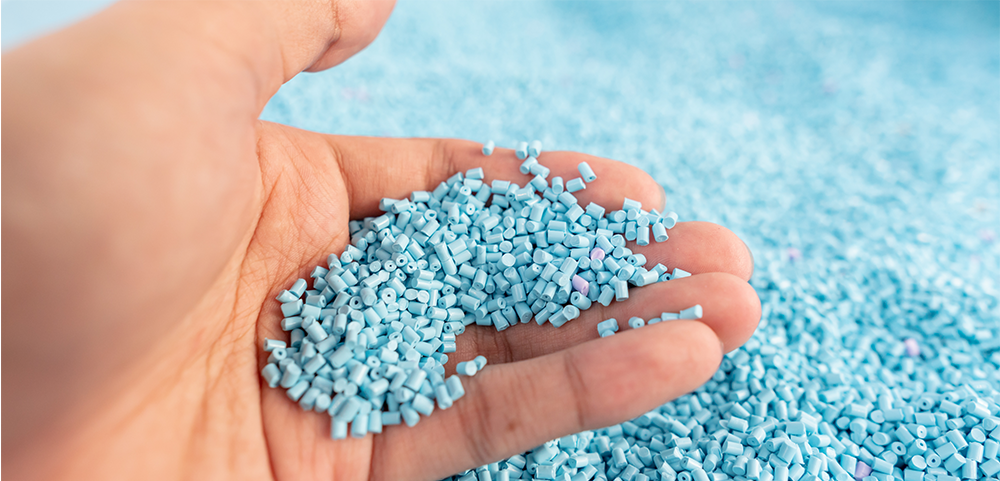Understanding Plastic Material Properties

Plastics, often referred to as resins, are lightweight and durable, making them suitable for a wide range of applications. In this article, we will explore the different types of plastic materials and their respective properties.
Table of Contents
What is Plastic?
The term “plastic” is often used interchangeably with “resin,” though they have distinct meanings in materials science and polymer chemistry. In everyday usage, the two terms are frequently confused. Generally, “plastic” refers to products made from synthetic petrochemical materials, whereas “resin” typically refers to substances derived from plant-based sources such as amber and rosin.
Types of Plastic Materials
The most common type of plastics processing is injection molding, and it primarily uses thermoplastic resins, which are categorized into three main types:
General-purpose Plastics
These are widely used in products like household appliances and toys, serving as both exterior and interior components. They are often simply referred to as general-purpose plastics.
Engineering Plastics
These special plastics are designed for industrial use and offer enhanced heat resistance and strength. They generally withstand temperatures above 100°C (212°F) and are considered stronger than general-purpose plastics but weaker than metal components.
Super Engineering Plastics
These plastics exceed the performance of engineering plastics, withstanding temperatures above 150°C (302°F). They are commonly used in high-performance applications such as medical devices and food manufacturing.
Commonly Used General-purpose Plastics
General-purpose plastics include the following types:
・Acrylonitrile Butadiene Styrene (ABS)
Known for its excellent processability, including plating and painting, ABS is widely used in electrical products and toys. It’s also compatible with certain 3D printers.
・Polyethylene (PE)
This plastic is flexible and exhibits excellent chemical and water resistance. It’s often used in containers; although, its flexibility can make it challenging to remove from molds during injection molding.
・Polypropylene (PP)
Lightweight and highly resistant to chemicals, PP is widely used in food containers. Its durability also makes it suitable for applications such as bendable hinges.
・Polystyrene (PS)
Often used in expanded forms (like Styrofoam), PS is relatively lightweight and can be molded into thin shapes, making it common for food containers. However, it is susceptible to oils and heat.
・Polymethyl Methacrylate (PMMA)
Commonly known as acrylic, PMMA is characterized by high transparency and strength, but is vulnerable to impact and alkalinity, leading to cracking and whitening.
Engineering and Super Engineering Plastics
Engineering and super engineering plastics include the following types:
・Bakelite
Bakelite, known as the world’s first synthetic plastic, is renowned for its excellent heat resistance, strength, and electrical insulating properties. It is used in adhesives, coatings, and electrical insulation materials.
・Polyoxymethylene (POM)
Also known as acetal, POM features a smooth texture, excellent sliding properties, and wear resistance, making it suitable for components like gears and bearings. However, it has low weather resistance, limiting its use in outdoor applications.
・Polycarbonate (PC)
Known for its high clarity and impact resistance, polycarbonate is used in optical devices and applications requiring strong, durable covers.
・Polyethylene Terephthalate (PET)
PET is commonly used in bottles and can be reinforced with glass or carbon fibers for industrial applications.
・Polyphenylene Sulfide (PPS)
Often reinforced with glass or carbon fibers, PPS boasts excellent heat resistance and mechanical strength, making it suitable for high-temperature environments due to its flame-resistant properties.
・Polyether Ether Ketone (PEEK)
A representative of super engineering plastics, PEEK can withstand temperatures above 240°C (464°F), offering high mechanical strength, impact resistance, and chemical resistance. Notably, it does not hydrolyze even in high-temperature steam.
Conclusion
There is a wide variety of plastic materials, each with unique properties. When selecting materials for manufactured components, it is crucial to consider the operating environment and desired characteristics to ensure optimal performance.
What’s meviy?
On-demand, fast sourcing of quality custom mechanical parts is made possible by meviy.
meviy is one of the most reliable on-demand manufacturing platforms in the US that allows you to get instant quotes for your mechanical parts simply by uploading 3D CAD data. No longer need to create 2D drawings just to quote parts. This platform supports not only manufacturing but also common surface finishes for sheet metal fabrication and CNC machining, including milling and turning, and has saved time for over 160,000 mechanical designers and purchasers worldwide.






